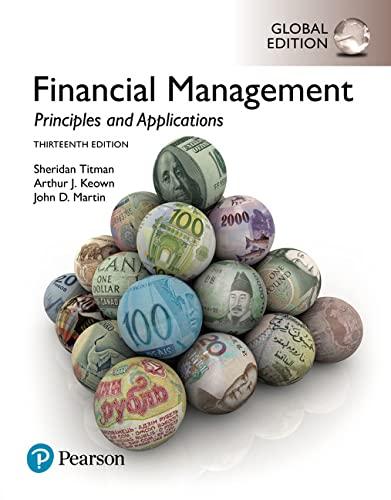U.S. companies have been carrying more cash ever since the global financial crisis of 2008. According to recent Flow of Funds estimates, U.S. non-financial corporations are sitting on an aggregate cash and marketable securities position of close to $4 trillion. Largest companies in the S&P 500 index, including communications services giant Alphabet (GOOGL), and technology stalwarts Apple (AAPL) and Microsoft (MSFT), each hold a lion's share of this cash stockpile. The cash stash of Canadian non- financial firms has been increasing as well. Cash ratio for S&P 500 Cash ratio (%) (N) Cash and equivalents per share (8) 400 350 300 250 200 150 ON 582 100 50 0 2004 2005 2006 2007 2008 2009 2010 2011 2012 2013 2014 2015 2016 2017 2018 2019 2020 Duta compiled June 21, 2020 Cash ratio cash and equivalente as a percentage of total current liabilities, on a pershare basis Analysis is based on the SAP 500 and elect S&P 500 sector Financial data burdon GAAP ogs Represents the first calendar quarter of 2020 Credit Car Weeks Source: S&P Global Market Intelligence There are many possible reasons for why companies aren't spending more given their vast reserves, and we talked about those in class. We discussed that precautionary motives are an important factor in a firm's decision to hold cash. However, precautionary motives only explain the cross-sectional variation in domestic cash. A majority of the rise in total cash and 85% of the rise in the cash held by multinational corporations (MNCs) is due to a rise in MNCs foreign cash. This rise in foreign cash is driven by tax factors. As foreign tax rates fell below U.S. rates, there has been an incentive not only to delay the repatriation of foreign income, but also to shift income into lower tax jurisdictions. In this discussion I ask you to think about the long-term effects of this on company balance sheets as well as on the overall economy. Is there a danger for the economy from firms' decisions to hoard cash? Should governments intervene and incentivize companies to repatriate funds held overseas? Source: The Review of Financial Studies article e' by Faulkender, Hankins, and Petersen U.S. companies have been carrying more cash ever since the global financial crisis of 2008. According to recent Flow of Funds estimates, U.S. non-financial corporations are sitting on an aggregate cash and marketable securities position of close to $4 trillion. Largest companies in the S&P 500 index, including communications services giant Alphabet (GOOGL), and technology stalwarts Apple (AAPL) and Microsoft (MSFT), each hold a lion's share of this cash stockpile. The cash stash of Canadian non- financial firms has been increasing as well. Cash ratio for S&P 500 Cash ratio (%) (N) Cash and equivalents per share (8) 400 350 300 250 200 150 ON 582 100 50 0 2004 2005 2006 2007 2008 2009 2010 2011 2012 2013 2014 2015 2016 2017 2018 2019 2020 Duta compiled June 21, 2020 Cash ratio cash and equivalente as a percentage of total current liabilities, on a pershare basis Analysis is based on the SAP 500 and elect S&P 500 sector Financial data burdon GAAP ogs Represents the first calendar quarter of 2020 Credit Car Weeks Source: S&P Global Market Intelligence There are many possible reasons for why companies aren't spending more given their vast reserves, and we talked about those in class. We discussed that precautionary motives are an important factor in a firm's decision to hold cash. However, precautionary motives only explain the cross-sectional variation in domestic cash. A majority of the rise in total cash and 85% of the rise in the cash held by multinational corporations (MNCs) is due to a rise in MNCs foreign cash. This rise in foreign cash is driven by tax factors. As foreign tax rates fell below U.S. rates, there has been an incentive not only to delay the repatriation of foreign income, but also to shift income into lower tax jurisdictions. In this discussion I ask you to think about the long-term effects of this on company balance sheets as well as on the overall economy. Is there a danger for the economy from firms' decisions to hoard cash? Should governments intervene and incentivize companies to repatriate funds held overseas? Source: The Review of Financial Studies article e' by Faulkender, Hankins, and Petersen








